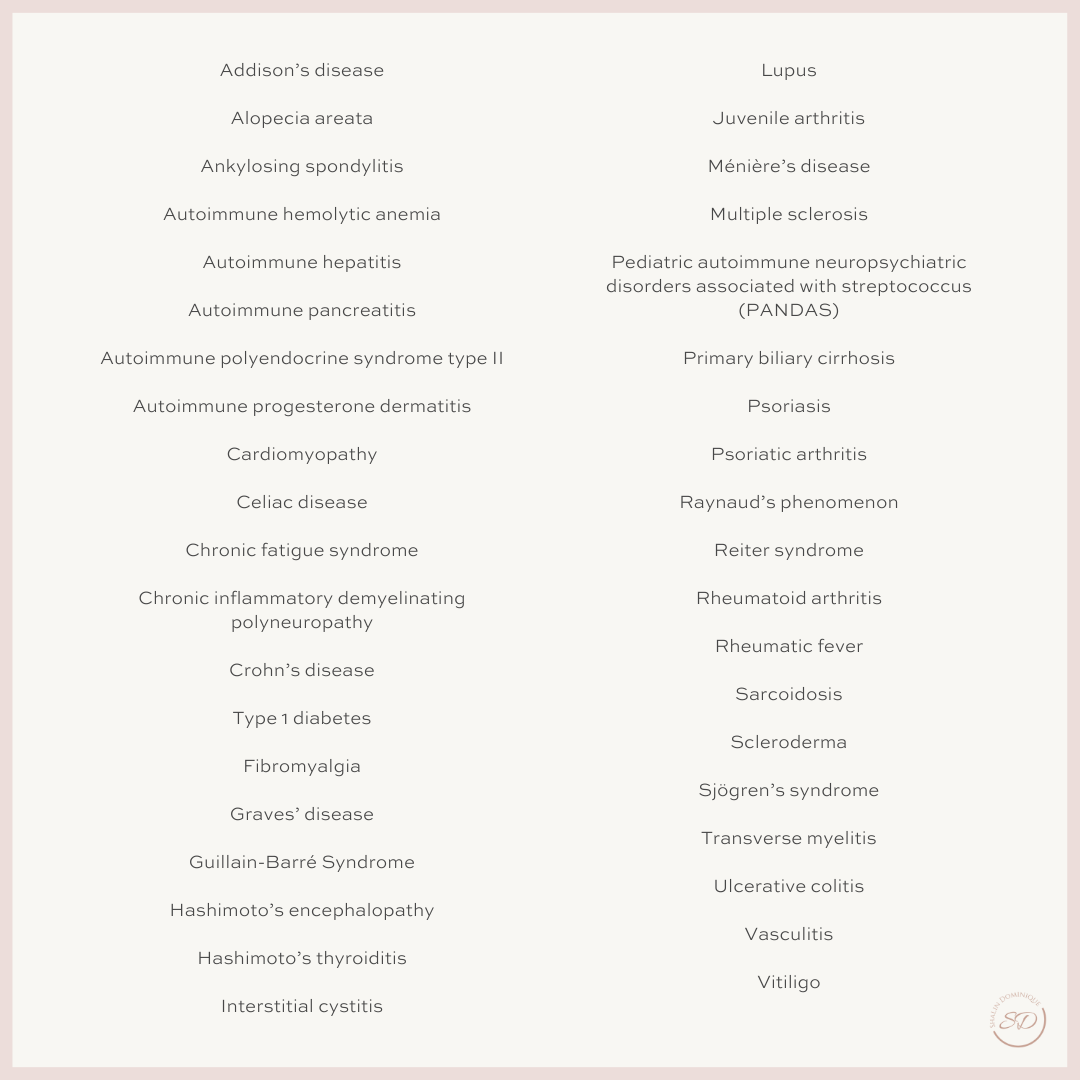Decoding Autoimmunity: How To Stop Your Body Attacking Itself
Have you experienced the frustrating feeling that your body is working against you, making your weight loss goals an uphill challenge? If you're part of the 23 million Americans battling autoimmunity, you're not alone. Autoimmune diseases, the third most common category of illnesses in the United States, affect 75% of women, with a significant rise observed over the past 50 years.
What is Autoimmunity?
Your immune system is like a vigilant security team, designed to differentiate between friend and foe in your body. When it spots troublemakers like infections or toxins, it goes into action, aiming to eliminate the threat. Ordinarily, your immune system can distinguish between foreign cells and your own cells. Yet, in autoimmune diseases, this discrimination falters. Your immune system identifies parts of your body, like joints or skin, as foreign invaders, triggering the release of autoantibodies. These proteins then attack your healthy cells, leading to various autoimmune conditions. In essence, autoimmunity is a situation where your defense system, instead of protecting you, mistakenly targets and harms your own body.
If ten people have the autoimmune condition, the reasons behind it can be different for each person. This means that treating them effectively requires a unique approach. However, what ties these conditions together is inflammation, which is a shared factor in their root causes. While Inflammation is an essential aspect of our immune system and serves important roles like fighting infections and promoting healing, excessive levels can contribute to various modern diseases, especially autoimmune conditions.
The 3 Stages Of Autoimmunity
The progression of autoimmunity often takes place silently over years, with individuals unaware of the internal battle waged by their immune systems.
1. Silent Autoimmunity: Individuals may have positive antibody labs, indicating immune system activity, but they don't experience noticeable symptoms.
2. Autoimmune Reactivity: Positive antibody labs suggest that the immune system is actively reacting, and symptoms become apparent.
3. Autoimmune Disease: This stage is marked by significant body destruction and the manifestation of various symptoms. Unfortunately, by the time most people receive a diagnosis, substantial damage to the body has already occurred due to prolonged immune system activity.
Autoimmune conditions typically manifest in 7 different areas of the body:
The digestive system
The brain and nervous system
The detoxification system (liver, kidneys, lymphatic system)
The endocrine system (hormones)
The blood sugar and insulin system
The musculoskeletal system
The immune system
People with a single autoimmune condition face a higher risk of encountering additional autoimmune issues, a phenomenon known as poly-autoimmunity.
Common Symptoms of Autoimmunity
Different autoimmune diseases may have similar early symptoms. These can include:
Weight Gain/Inability to Lose Weight
Fatigue
Dizziness or lightheadedness
Low-grade fever
Muscle aches
Swelling
Trouble concentrating
Numbness and tingling in your hands and feet
Hair thinning or loss
Skin problems (rashes, eczema, etc.)
Brain fog
Abdominal pain
Digestive distress
Brittle nails
Insomnia
Anxiety
Depression
Root Causes Of Autoimmunity
Understanding autoimmunity involves unraveling its complex roots. Genetic predisposition is a factor, with specific gene clusters influencing the immune system, particularly the pivotal role of Human Leukocyte Antigens (HLA) in determining susceptibility to autoimmune diseases. Family history contributes to about one-third of the risk of developing an autoimmune disease. However, genes alone do not determine your fate, it's your lifestyle and environment that dictate whether these specific genes are activated. Even if you have a genetic susceptibility and encounter various environmental triggers, a leaky gut is frequently the decisive factor in the onset of autoimmunity, as a healthy gut serves as a barrier, preventing a direct connection between your genes and the external environment.
Periodically, everyone's gut may develop leaks. If the gut is in good health, the lining can heal; however, in poor condition, it may struggle to close fissures chronically. As the permeability of your gut intensifies, the likelihood of developing an autoimmune disease increases. Conversely, taking measures to repair your gut lining moves you towards reversing autoimmunity.
Most common Autoimmune Diseases
Currently, there are nearly 100 acknowledged autoimmune diseases, along with 40 other medical conditions that involve an autoimmune component.
Autoimmunity-Weight-Gain-Connection
Ever wondered how autoimmune diseases can be linked to weight gain? It's a multi-faceted connection.
A leaky gut, where the intestinal lining allows toxins into the bloodstream, is a crucial factor. Zonulin, acting like a traffic cop, opens spaces between cells, creating a leaky gut. This compromised gut can lead to food sensitivities, nutrient deficiencies, chronic inflammation, impaired metabolism, and increased toxic burden, all contributors to weight gain and an inability to lose it.
Some autoimmune conditions lead to fluid retention or influence hormone levels, both of which play a role in weight gain.
In autoimmune diseases, inflammation persists in the body for an extended duration. This prolonged inflammation can affect weight, primarily by disrupting the hormone leptin. Leptin plays a crucial role by signaling the brain to cease eating when satiated. When inflammation disrupts this feedback loop, there's a higher likelihood of overeating, resulting in weight gain or difficulty in losing weight. Unfortunately, the impact doesn't end there. The loss of responsiveness to leptin, known as leptin resistance, can further complicate matters, requiring time to restore the brain's connection with this hormone. Leptin resistance is considered a significant contributor to weight gain.
Moreover, weight gain itself can contribute to inflammation. Adipose tissue, or fat cells, can trigger inflammation by releasing proinflammatory adipokines, leading to the infiltration of immune cells and fostering systemic inflammation.
A common misconception is that autoimmune diseases are irreversible and can only be "managed" using strong medications or procedures that merely hide the symptoms. Luckily this could not be further from the truth. Download the PDF below to discover the HLA genes linked to specific autoimmune diseases, methods for testing autoimmunity, and natural approaches, and my favorite supplements to reverse it.


